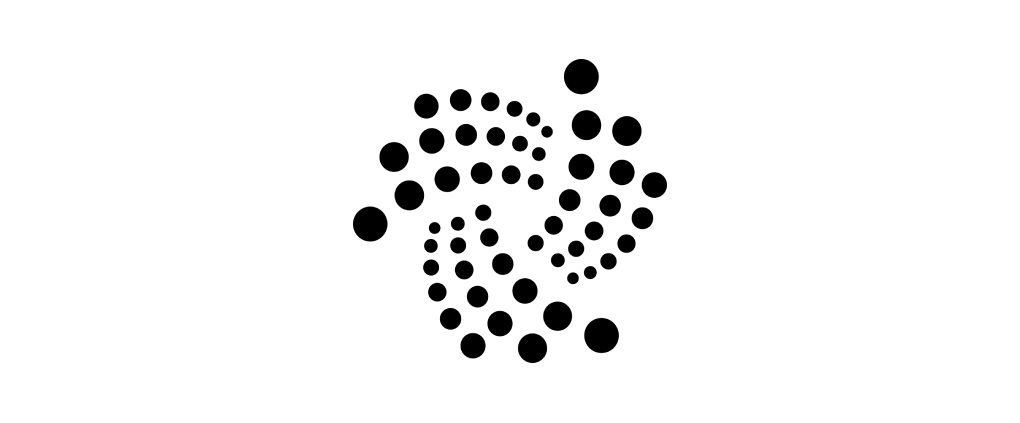Coincheckup reports these 3 coins (Terra LUNA, IOTA and Polkadot (DOT)) to be interesting to watch now and into 2022 because of several innovations.
The final weeks of a year are usually relatively quiet – most projects use this time to go on a well-deserved break, and typically don’t have major announcements or launches during the period. However, that doesn’t mean that nothing interesting is happening in crypto right now. Here are 3 crypto projects that will be worth following in the coming days.

3. Terra (LUNA)
The Terra blockchain platform is designed to support algorithmic stablecoins and a decentralized finance ecosystem built around them. Terra is built using the Cosmos SDK and uses Tendermint consensus. The network also supports the issuance of synthetic assets through its Mirror Protocol.
The rapid growth of Terra’s DeFi ecosystem pulls the value of LUNA towards $100
On December 22, LUNA hit a new all-time high at almost $100. This is extremely impressive if we consider that the token was trading below $1 at the start of 2021. Alongside the LUNA token’s price, Terra’s DeFi ecosystem has also been seeing rapid growth.
According to data from DeFi Llama, Terra is currently the second-largest DeFi platform in terms of TVL (Total Value Locked). At the time of writing, Terra has a TVL of $19.2 billion, ahead of the $16.7 billion figure on Binance Smart Chain. Admittedly, the 1st spot is currently out of reach for Terra, as Ethereum is dwarfing all competitors with its TVL of $155.4 billion. Currently, the most popular DeFi protocol on Terra is Anchor, which offers yields on Terra-based stablecoins.

2. IOTA (IOTA)
IOTA is a project that’s tackling decentralized ledger technology in an alternative way instead of using blockchain architecture. The IOTA network uses the directed acyclic graph (DAG) architecture, which can provide significant scalability improvements over blockchain, although it has proven to be more complex to implement successfully.
Smart contracts and true decentralization are coming to the IOTA network
There are two additional networks being built to complement the IOTA ecosystem: Shimmer and Assembly.
Shimmer is based on the same consensus mechanism as the IOTA 2.0. DevNet, but instead functions as a truly decentralized network. Shimmer is designed to be upgraded with new features before they make their way to the IOTA mainnet. The role of the Assembly network is to bring smart contract functionality to the IOTA ecosystem. Assembly is anchored to the IOTA network, but also has a pool of decentralized validators.
Shimmer and Assembly will have their own native tokens called SMR and ASMB, respectively. IOTA is now holding a staking program where users will be able to earn SMR and ASMB by staking IOTA. The pre-staking period began on December 21, and users will start receiving their staking rewards from December 28th onward for a 90-day period. You can learn more about the IOTA staking program by reading the project’s official announcement.

1. Polkadot (DOT)
Polkadot is a blockchain platform focused on interoperability, scalability and on-chain governance. Polkadot is designed as a network where customizable blockchains called “parachains” can connect to the main Relay Chain, providing significant security and interoperability between parachains. Polkadot is secured through a Proof-of-Stake (PoS) consensus mechanism.
The second batch of parachain auctions is bound to bring additional interest to the Polkadot ecosystem
The second batch of Polkadot parachain auctions is currently underway, and the Polkadot ecosystem is poised to enjoy some additional attention in the coming weeks. The 6th parachain auction started on December 23, and auctions will be taking place on a weekly basis until March 10, 2022.
Polkadot currently supports a limited number of parachain slots, which means that projects that want to connect a parachain to the network have to win a parachain slot auction. To get the necessary amount of DOT to win an auction, most projects organize “crowdloan” campaigns where users can lend their DOT to the project. If the project wins, crowdloan contributors are typically rewarded with the project’s native tokens (for example, ACA in the case of Acala). The DOT contributed in crowdloans is locked and automatically returned when the project’s parachain lease expires, or if the project fails to win an auction.
Some of the more interesting projects currently competing for a parachain slot are Efinity, Manta Network, Litentry, Crust Network and Centrifuge.
To view the full schedule of the second batch of parachain auctions, you can check out this official announcement from Polkadot.
DISCLAIMER: Although the material contained in this website was prepared based on information from public and private sources that telosfly.com believes to be reliable, no representation, warranty or undertaking, stated or implied, is given as to the accuracy of the information contained herein, and telosfly.com expressly disclaims any liability for the accuracy and completeness of the information contained in this website.

